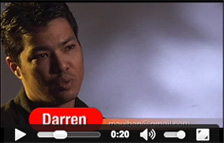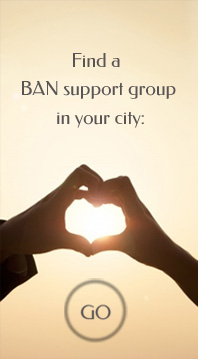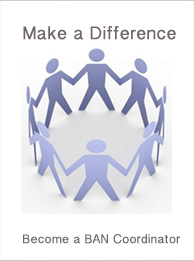Beyond Affairs Network Guidelines – The Purpose and Procedures of BAN Meetings
BAN serves two primary purposes:
As a place to safely share the painful emotions that interfere with recovery.
As a place to gain strength and perspective, aimed at thinking more clearly and acting more effectively – in order to recover from this experience.
Any good support group needs to provide help in two different ways:
Through “caring” (when there’s simply a need for support).
Through “wisdom” (when there’s a need for sharing experiences as to what has been helpful).
Just as when a leg is broken and a crutch is essential for a period of time, the group needs to be this kind of crutch for awhile; but if that’s all it offers, the person can become dependent and never learn to walk on their own.
The ultimate goal of BAN is to help people reach a point where they no longer need it. This process takes time and can’t be rushed. Nevertheless, it’s important that BAN serve to actually “move the process along.”
So each BAN member will determine for themselves just what they’re looking for from the group at any particular time and use the group to reinforce their own effort. This does not mean it is a selfish pursuit just “for your own good.” (Sometimes “helping others” does more to “help yourself” than almost anything you can do.) Reaching out to help others, rather than focusing only on oneself can make each member stronger.
What happens at BAN Meetings
- Coordinators “Facilitate” (not “lead”) the meetings. The Coordinator is there to participate as a full member, not just to help others. It’s their responsibility to share their feelings and experiences just as others do. It’s important that there are no experts and no leaders, so that each person is an equal member of the group and participates in such a way as to empower everyone present.
- The general nature of the discussions will be in keeping with the BAN Guidelines listed below.
- The general length of the meetings may be about two hours. (However, the group can discuss this and make whatever changes suit the group.)
- Members may remain anonymous, using only first names.
- No one is expected to share more specific details about their situation than they are comfortable sharing. (In fact, it’s more useful to discuss how you’re dealing with this than recounting details.)
- Everyone is expected to participate in some way; no one sits as a “silent observer.”
These questions are used as a guide for members when sharing personal stories:
- How many years had you been married when you learned of the affair?
- What was the date you learned about your spouse’s affair?
- Have you and your spouse talked about it a little or a lot?
- Who else have you discussed it with: a friend, a family member, a counselor or other professional, other – or no one?
- Are you still married? separated? divorced?
Beyond Affairs Network Guidelines for Participation and Interaction
| 1. |
Be honest in your sharing. Avoid any tendency to “put up a good front.” Don’t compete by trying to sound better or worse off than someone else. Remember… you’re all in this together and you don’t have to impress anybody. |
| 2. |
Support each other in feeling good about yourselves and your ability to cope with the situation. Self-confidence is vital in getting beyond the pain. This means not getting bogged down in ” blaming” and griping about “how awful it is.” Acknowledging these feelings may be necessary and useful, but going over and over them doesn’t change anything-and may do you harm. It can keep you feeling sorry for yourself, and this just makes it harder to develop your sense of self-worth. |
| 3. |
Really listen to the other people. You’re there to support each other. That can’t happen if you’re only thinking about yourself. |
| 4. |
Don’t debate differences of opinion. Being supportive means avoiding “approving” or “disapproving.” There’s no need to be in agreement. Support comes from understanding and accepting-not from judging. |
| 5. |
Avoid “leading” questions or “helpful” advice, such as:
–“Why don’t you…?”
–“Did you try…?”
–“I think you should…”
–“If it were me, I’d…” In your BAN groups remember to share, “in a similar situation, I did this and it was or wasn’t helpful.” Or “one idea you might consider is …” instead of “You should …” We all need to work towards resisting the temptation to tell others exactly what to do. What is right for one may not be right for another. |
| 6. |
Ask clarifying questions to help others think things through for themselves, such as:
–“How long have you felt this way?”
–“Have you discussed this with anyone else?”
–“What have you tried?”
–“What are your alternatives?” |
| 7. |
Talk about your feelings. That’s more important than the details of your experience. |
| 8. |
If you feel angry-admit it. You can’t overcome it as long as you hide or deny it. This doesn’t mean you have to act on it. Just openly acknowledging your anger is the first step toward loosening its power. |
| 9. |
If you feel guilty-say so. You may be holding secret fears that somehow it’s all your fault. Again, you need to acknowledge the feelings before you can deal with them. There are many burdens of guilt you may have put on yourself that you need to get rid of. You could feel:
–guilty that you failed to have the “ideal” relationship.
–guilty that you’re leaving your partner.
–guilty that you’re not leaving your partner.
–guilty that you feel angry or vindictive. |
| 10. |
Freely respond to others when they express feelings that you understand or can identify with. This may not seem very important, but it can be critical in giving them the strength they need and letting them see they’re not alone. You can offer comments, such as:
–“I know how you feel.”
–“I’ve had that experience too.”
–“That’s one of my concerns…or fears…or uncertainties.” |
| 11. |
Be careful of your reactions (such as sounds and body language), to the personal sharing of others. Expressing extreme shock can add to another members’ bad feelings. |
| 12. |
Make your own decisions. Remember that no one else can decide how you should feel or what you should do. They can provide support for you to figure things out for yourself.
|
| 13. |
Remember it is not your job to “fix” one another. |
| 14. |
Do not take on the pain of other group members. If something you hear at a BAN meeting causes you to feel sad or angry, really ask yourself the hard questions to try and get to the root of that feeling or issue. The heart of BAN is for you to have a positive experience, under the circumstances and leave the meeting feeling that you are not alone, encouraged, supported and with the confidence that you can handle anything that comes your way. It’s ok to be sad, but make a choice to find something to be thankful or happy about, no matter how bad you feel your situation is. Whatever you focus on will get bigger. So focus on things that lead to healing and empowerment. |
| 15. |
Everyone is free to share or not share whatever they feel comfortable with. Just remember the one book, piece of advice, etc., that you share with the group, may be exactly what someone in the group needed to hear in order to heal.
|
| 16. |
Be thoughtful about the amount of “airtime” you might be taking. Some people may be quieter, but they usually have a lot of good things to say. Their respectful manner, may keep them from interrupting when others are speaking, so make sure you’re not doing all the talking. And make it easier on your volunteer coordinator, by following their instructions. Remember we all hurt, and we all deserve support, and a chance to speak. Your coordinator may choose to allocate a certain amount of “share time” for each member. Please stop talking when your share time is up, and do not interrupt the share time of others.
|
| 17. |
Use the shopping cart method. When you go to the grocery store, no one forces you to buy one of every item on the shelf, but rather you can pick and choose which items are right for you. In the same way, when listening to sharing and advice at a BAN meeting, just pick and choose what is right for you. Take what is useful. Don’t take what isn’t useful for you.
|
| 18. |
Anonymity and confidentiality are basic requirements. What is shared in the group stays in the group. The only exception is when someone threatens to injure themselves or others.
|
| 19. |
BAN is a safe place for everyone. Don’t take out your anger or sadness on another member. Everyone is free to express themselves, but do so in a way that respects others in the group. Try not to offend each other and try not to be easily offended.
|
| 20. |
Alcoholic beverages are not permitted at BAN meetings. |
| 21. |
Dating is not acceptable at BAN. Betrayed spouses are vulnerable, and they all need time to heal. Even those who are divorced need an appropriate time to heal properly, before they will be ready to start a new and healthy relationship. BAN needs to be a safe place for all. If you forge friendships with other BAN members, we ask that those friendships be with the same sex. Even if you have only the purest intentions in reaching out to an opposite sex BAN member for support, the other person may not feel safe. Often BAN members are thoughtful, kind, and giving people, who are not accustomed to setting boundaries and saying “no” when something isn’t right for them, so please don’t put them in the space of needing to.
|
| 22. |
BAN is not for those who have had affairs themselves. Please note that while it is understandable that betrayed spouses may be tempted to have a revenge affair to “show their spouse how it feels.” In the end, such an intentional act usually has the opposite effect. The unfaithful spouse feels better, because now you are even, and you feel worse, because you just made a choice to lower your own standards. Two wrongs don’t make a right. Those who choose to have a revenge affair, become “those who’ve had affairs” and thereby disqualify themselves from attending BAN. |
| 23. |
Please remember that showing-up is half the battle. Thank you for taking that first step to allow the BAN members to help you heal. We are sorry you qualify to attend BAN, and we wish it were not your personal story, but since it is, we’re glad that have taken the step of reaching out for support, and now that you have, you will find yourself in the midst of some of the most wonderful people in this world.
|
Please note that violating the BAN guidelines
may result in you losing your privilege to attend BAN meetings.







